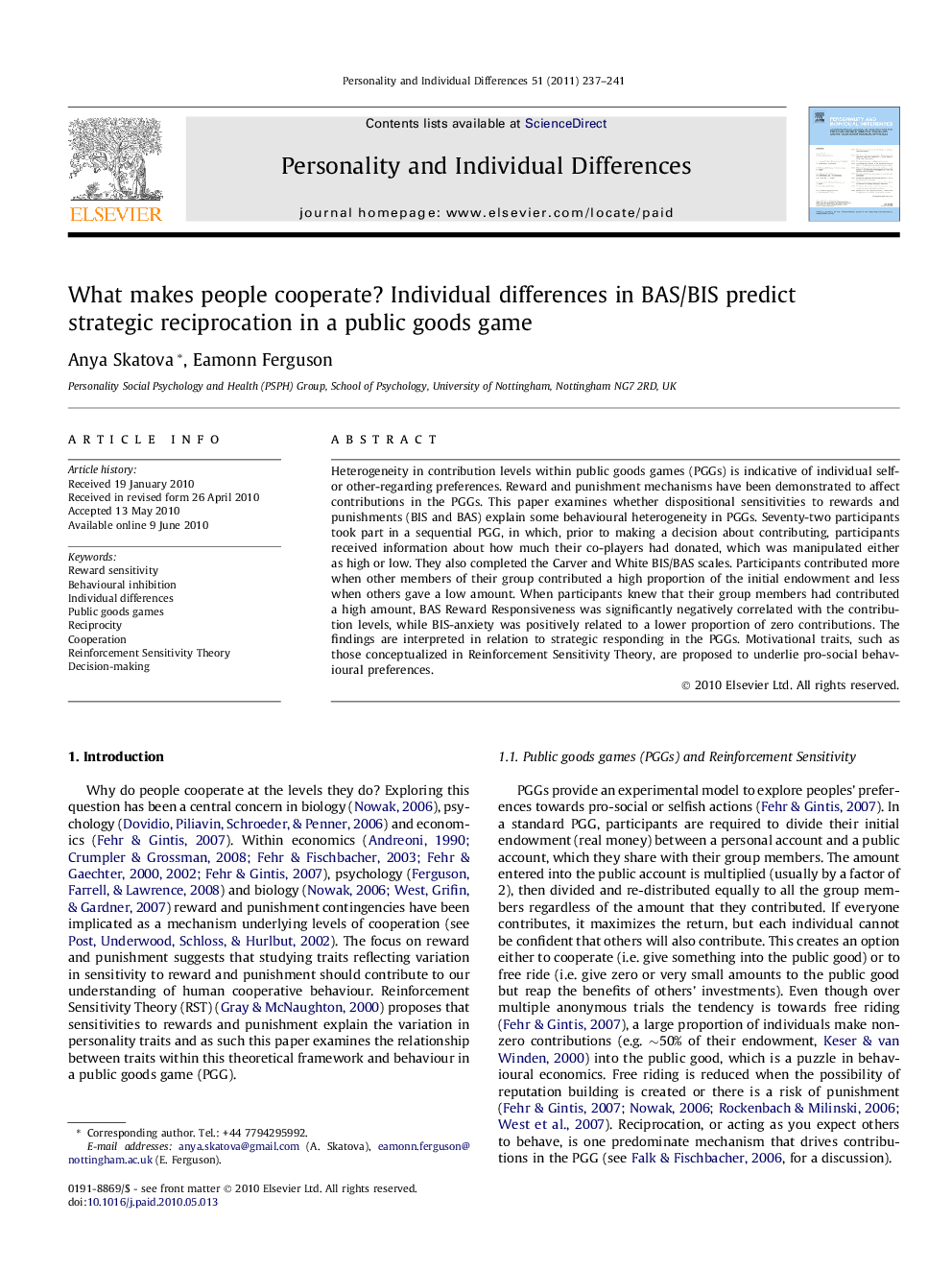| کد مقاله | کد نشریه | سال انتشار | مقاله انگلیسی | نسخه تمام متن |
|---|---|---|---|---|
| 10440631 | 914050 | 2011 | 5 صفحه PDF | دانلود رایگان |
عنوان انگلیسی مقاله ISI
What makes people cooperate? Individual differences in BAS/BIS predict strategic reciprocation in a public goods game
دانلود مقاله + سفارش ترجمه
دانلود مقاله ISI انگلیسی
رایگان برای ایرانیان
کلمات کلیدی
موضوعات مرتبط
علوم زیستی و بیوفناوری
علم عصب شناسی
علوم اعصاب رفتاری
پیش نمایش صفحه اول مقاله

چکیده انگلیسی
Heterogeneity in contribution levels within public goods games (PGGs) is indicative of individual self- or other-regarding preferences. Reward and punishment mechanisms have been demonstrated to affect contributions in the PGGs. This paper examines whether dispositional sensitivities to rewards and punishments (BIS and BAS) explain some behavioural heterogeneity in PGGs. Seventy-two participants took part in a sequential PGG, in which, prior to making a decision about contributing, participants received information about how much their co-players had donated, which was manipulated either as high or low. They also completed the Carver and White BIS/BAS scales. Participants contributed more when other members of their group contributed a high proportion of the initial endowment and less when others gave a low amount. When participants knew that their group members had contributed a high amount, BAS Reward Responsiveness was significantly negatively correlated with the contribution levels, while BIS-anxiety was positively related to a lower proportion of zero contributions. The findings are interpreted in relation to strategic responding in the PGGs. Motivational traits, such as those conceptualized in Reinforcement Sensitivity Theory, are proposed to underlie pro-social behavioural preferences.
ناشر
Database: Elsevier - ScienceDirect (ساینس دایرکت)
Journal: Personality and Individual Differences - Volume 51, Issue 3, August 2011, Pages 237-241
Journal: Personality and Individual Differences - Volume 51, Issue 3, August 2011, Pages 237-241
نویسندگان
Anya Skatova, Eamonn Ferguson,